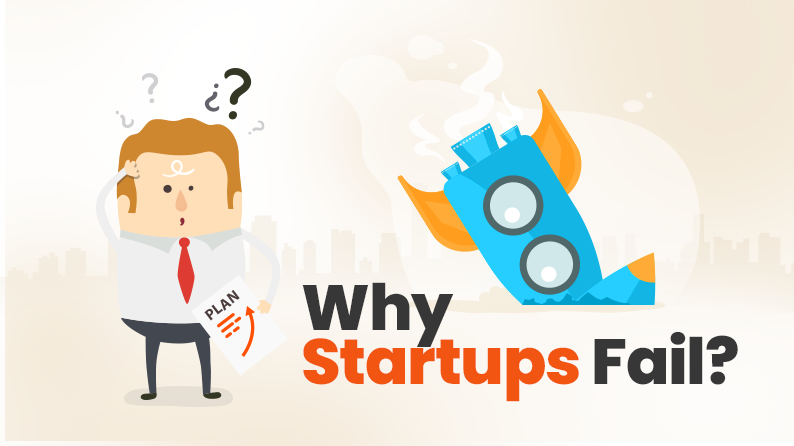Starting a business is an exciting yet challenging journey. While many startups emerge every year, a significant number fail within the first few years. Understanding why startups fail and implementing strategies to address these challenges can set your business on the path to success.
This article explores the common reasons behind startup failures and provides actionable steps to make your venture successful.

Common Reasons Why Startups Fail
1. Lack of Market Need
One of the primary reasons startups fail is the lack of demand for their product or service. If there's no real problem that your solution addresses, customers will not be interested.
Solution:
-
Conduct thorough market research before launching.
-
Validate your idea with a minimum viable product (MVP).
-
Gather customer feedback and refine your offering accordingly.
2. Insufficient Funding
Many startups run out of money before they reach profitability. Poor financial planning and misallocation of resources can drain funds quickly.
Solution:
-
Create a detailed financial plan with projected expenses and revenues.
-
Secure funding through investors, crowdfunding, or bootstrapping.
-
Optimize cash flow by reducing unnecessary expenses.
3. Poor Business Model
A weak or undefined business model can lead to confusion in revenue generation and scalability issues.
Solution:
-
Develop a clear revenue model (subscription, freemium, direct sales, etc.).
-
Continuously test and refine your business strategy.
-
Focus on scalable and repeatable revenue streams.
4. Ineffective Marketing
Without effective marketing, even the best products fail to reach the right audience.
Solution:
-
Invest in digital marketing strategies (SEO, social media, PPC).
-
Define your target audience and craft compelling messaging.
-
Use data-driven marketing campaigns to optimize results.
5. Wrong Team Composition
A lack of skilled personnel or conflicts within the team can hinder growth.
Solution:
-
Hire a diverse team with complementary skills.
-
Establish clear roles and responsibilities.
-
Foster a strong company culture and leadership.
6. Legal and Regulatory Issues
Non-compliance with legal and regulatory requirements can lead to fines or shutdowns.
Solution:
-
Ensure all business licenses and permits are in place.
-
Consult legal experts for contract and intellectual property protection.
-
Stay updated with industry regulations.
7. Failure to Adapt
The market is constantly changing. Businesses that fail to pivot struggle to survive.
Solution:
-
Stay updated with industry trends and customer preferences.
-
Be open to making changes based on performance and feedback.
-
Innovate and diversify offerings to remain competitive.
How to Turn Your Failing Startup Into a Success
1. Conduct a Business Audit
Assess the current state of your business by analyzing key areas such as finances, customer feedback, and operations.
| Key Area | What to Analyze |
|---|---|
| Financials | Cash flow, revenue, expenses |
| Customers | Feedback, complaints, engagement |
| Operations | Efficiency, supply chain, workflow |
| Marketing | Strategies, conversion rates, audience reach |
2. Refine Your Business Model
Re-evaluate your value proposition and adjust your revenue strategy to ensure profitability.
3. Enhance Your Marketing Strategy
-
Improve SEO and content marketing.
-
Leverage social media and influencer collaborations.
-
Focus on paid advertising with clear targeting.
4. Build a Strong Team
-
Hire skilled professionals who align with your vision.
-
Provide training and encourage collaboration.
-
Foster leadership and accountability.
5. Manage Finances Wisely
-
Track expenses and revenues using accounting software.
-
Seek investment or partnerships for financial stability.
-
Reduce unnecessary costs and focus on essential spending.
6. Listen to Your Customers
-
Conduct surveys and analyze customer feedback.
-
Adapt based on consumer needs and expectations.
-
Provide excellent customer service to build loyalty.
7. Stay Adaptable and Innovative
-
Monitor industry trends and adjust accordingly.
-
Experiment with new business models if needed.
-
Continuously test and refine products and services.
Majid Anwar
Top Contributors
Related Articles
Why Your First Job Doesn’t Define Your Career – Key Factors for Long-Term Success
- Ilmkidunya
- 14/Apr/2025








.gif)


































